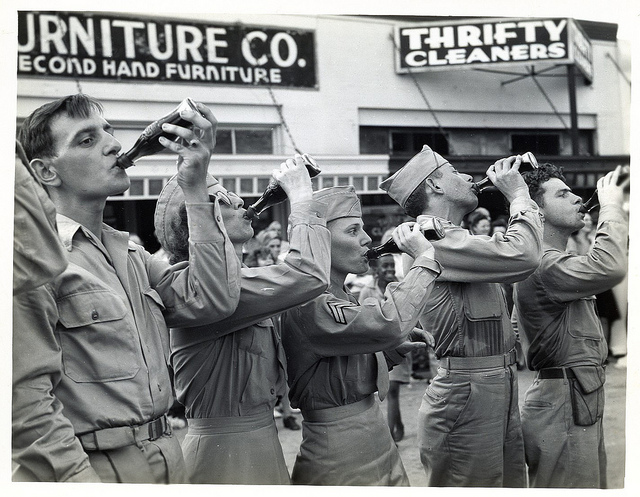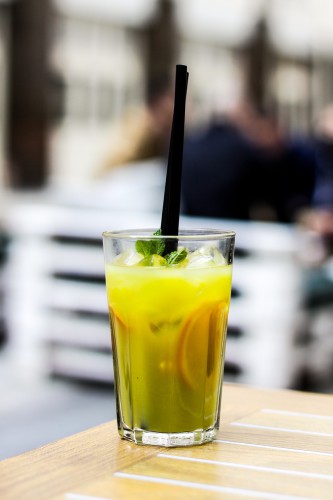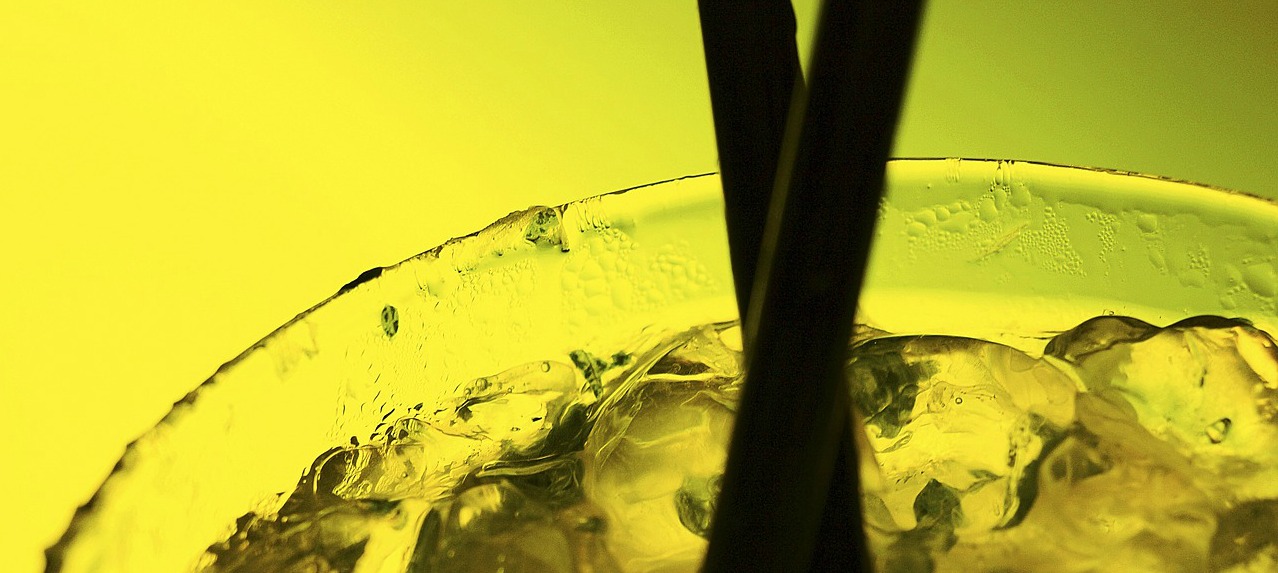Soft drinks appeared over two centuries ago, at the end of the XVIIIth c. Many of these drinks came from the pharmaceutical world, and they were used to recover from minor illnesses like indigestion or heartburn. As in the case of most drinks, apart from water and milk, they are acidic drinks.
In the XXth c., from the IIWW on, soldiers popularized their consumption due to their high concentration of sugar and caffeine, as they provided energy and bolstered the troops up. That’s how their consumption became widespread, even substituting water in the diet of many people.
Obviously, if I´m fighting in a battle, uncertain about being alive the next day, the fact that soft drinks may affect or stain my teeth is the least of my problems. However, when we go back to the daily life, that is another matter.


The consumption of these drinks has been related to many illnesses, mainly to the great pandemic of our time: obesity. We are going to focus on the effects of soft drinks, as well as sugary juices, in our teeth.
Dental Erosion and Tooth Decay
Dental erosion is the thinning or wearing away of the hard coating of a tooth (the enamel) caused by chemical processes, normally by the effect of acids. Usually, soft drinks contain acids, so they attack enamel anyways.
Acid attack takes 20 minutes to be neutralized by our own saliva. However, everytime we take a sip of our glass, the process starts over, so drinking slowly and in sips is the worst thing to do.
Fruit juices and sports drinks are neither healthy for teeth. The more acid and sugary they are, the worse.


Apart from the acids that contain these drinks, the sugar also feeds bacteria living in our mouth, and produce acids that cause tooth decay, a deeper lesion.
In recent years, the increasing influence of dental erosion and tooth decay in younger and younger people has been proved. We find kids with primary teeth affected due to these drinks (we must include juices in brick packs, high in sugar, which students take to school), that finally attack the permanent teeth.
Teeth Stains
Other effects of soft drinks are stains and darkening of the teeth because, among many other things, they usually contain lots of colorants that stay in our teeth when the enamel weakens as a consequence of the acid attack. Teeth stains are especially noticeable in those people who work with a soft drink close and constantly drink in sips.
There is a popular phenomenon in US known as “ Mountain Dew Mouth“. Mountain Dew is a lemon beverage consumed in Appalachia, where the 26% of school-age children has tooth decay and the 15% of children under 24 has already lost at least one tooth due to tooth decay. The consumption of this drink is such that many people don’t drink anything else, and they drink it all day long.
Our Advise
.The best thing to do would be to stop drinking soft and sugary drinks and replace them with water, though we understand this must be tough for some people.
.When you drink a soft drink, do it as quick as you can. It is much better taking a couple of long sips than short and continuous ones.
. Do not brush your teeth until 40 or 60 minutes after drinking, since the enamel is weaken and may be damaged.
. Saliva balances Ph in the mouth, so we can help this process by rinsing with water or milk, eating a piece of cheese or chewing a sugar free gum.
.The best time to consume these drinks is at the moment we eat; and the worst, before going to bed because we have to wait to brush our teeth.
.Some drops of lemon in our soft drink is not such a good idea, since they increase acidity.
. Regular dental checks to control your mouth is healthy is also really important.



